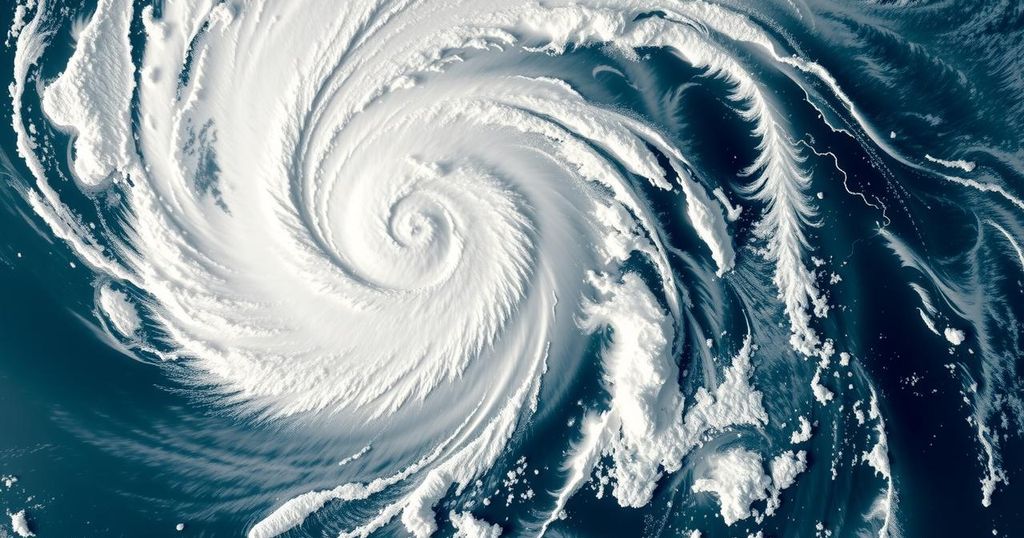Tropical Cyclone Chido has impacted Mozambique and Malawi, causing severe winds and heavy rainfall. Initial reports indicate one death and injuries to 35 individuals, with over 24,000 people affected. Governments and humanitarian partners are working to assess damages and provide urgent relief, while a $4 million fund has been allocated for assistance. The cyclone is expected to dissipate by 17 December near Zimbabwe, with ongoing threats of flooding and further rainfall in the region.
Tropical Cyclone Chido has made landfall in Mozambique and is currently progressing into Malawi, where it is causing severe weather conditions, including strong winds exceeding 80 km/h and heavy rainfall that has surpassed 250 mm in just 24 hours. The storm, which is expected to dissipate by 17 December near Zimbabwe, has resulted in at least one fatality and injuries to 35 individuals, affecting more than 24,000 people across various regions. Emergency relief efforts are underway, with $4 million allocated from the Central Emergency Response Fund to support the urgent response to the disaster.
The situation remains critical as assessments continue to be conducted by government and humanitarian partners despite significant obstacles, including communication disruptions and damaged roads. Approximately 160,000 individuals in Cabo Delgado province are estimated to require assistance, particularly in Pemba, where around 150,000 people are recognized as vulnerable. Areas such as Mecufi have been identified as severely impacted, with widespread destruction of housing and infrastructure, including several schools and power lines.
As Chido advances through Malawi and into further northern regions, reports indicate that around 1,800 households, equating to approximately 8,100 people, have been affected by the cyclone’s aftermath in several districts. Machinga is reported as the hardest hit with additional fatalities in Blantyre rural and other regions experiencing severe infrastructural damage. Rainfall is also forecasted to affect not only Malawi and Mozambique but also surrounding nations such as Zimbabwe, Zambia, and beyond, raising the risk of flash floods and mudslides due to the cumulative impact of weather systems in the region.
Tropical Cyclone Chido initially developed in early December and rapidly intensified, reaching severe categories before weakening again. As it continues its trajectory towards inland regions, local authorities and citizens are urged to remain vigilant and informed through their national meteorological services to prepare for further adverse weather conditions.
Tropical Cyclone Chido originated in the south-eastern Indian Ocean Basin, initially developing as a tropical depression on 7 December and escalating to significant tropical cyclone categories by 10 December. The cyclone has notably affected several countries in Southern Africa, with its most severe impacts recorded in Mozambique and Malawi. The area is prone to cyclones, which can cause widespread destruction including fatalities, injuries, and extensive damage to homes and public infrastructure. Humanitarian organizations, including the United Nations Office for the Coordination of Humanitarian Affairs (OCHA), play a crucial role in coordinating emergency responses during such disasters.
In conclusion, Tropical Cyclone Chido has caused significant damage and hardship across Mozambique and Malawi, leading to fatalities, extensive injuries, and displacement. As emergency responses are mobilized and assessments continue, it is imperative for affected communities to receive timely assistance and for local governments to enhance preparation for forthcoming adverse weather conditions. Continued vigilance and effective communication will be crucial in mitigating the cyclone’s impact on already vulnerable populations in the region.
Original Source: reliefweb.int






